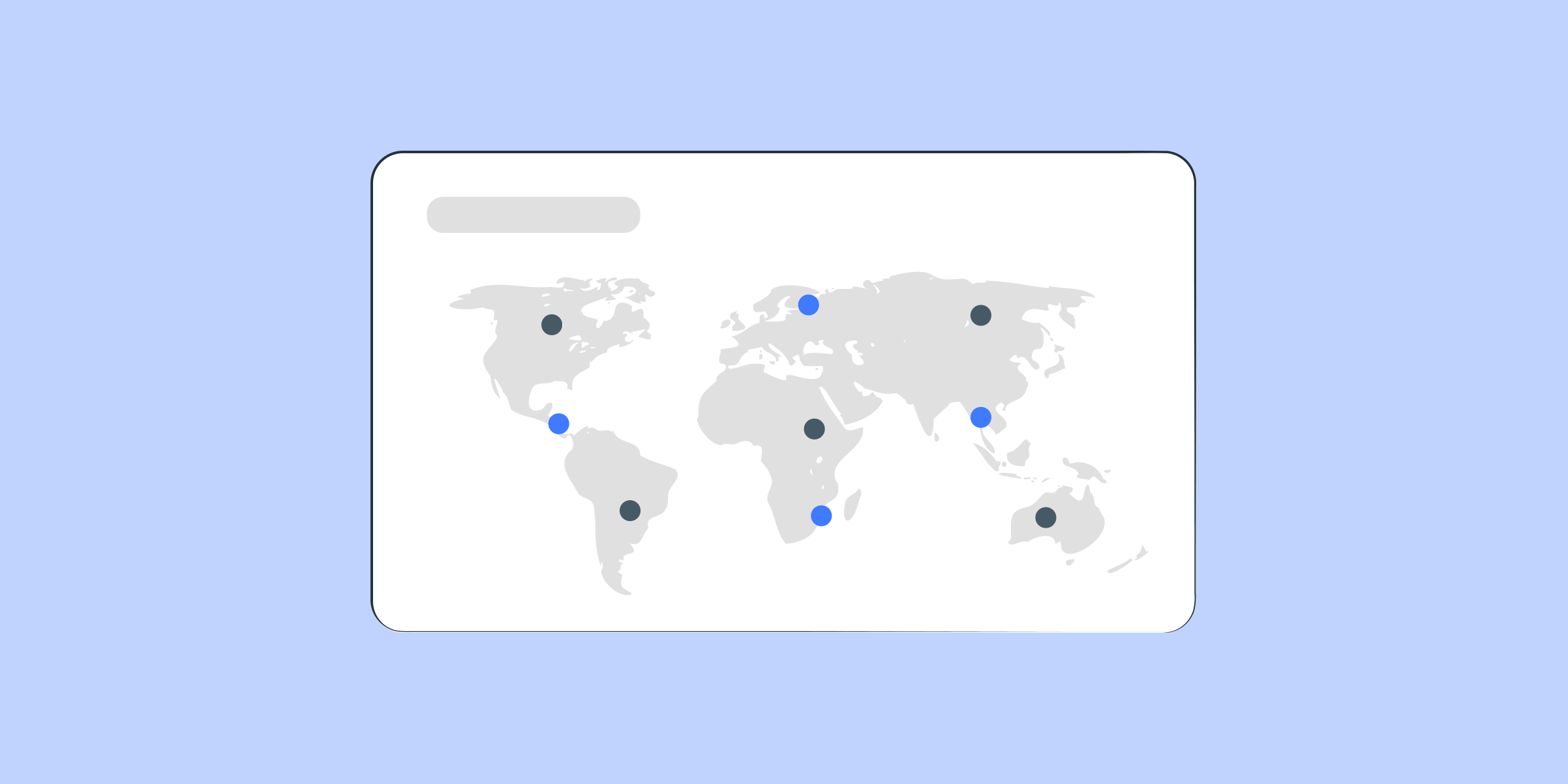Residential Proxies
Allowlisted 200M+ IPs from real ISP. Managed/obtained proxies via dashboard.

Proxies Services
Residential Proxies
Allowlisted 200M+ IPs from real ISP. Managed/obtained proxies via dashboard.
Residential (Socks5) Proxies
Over 200 million real IPs in 190+ locations,
Unlimited Residential Proxies
Unlimited use of IP and Traffic, AI Intelligent Rotating Residential Proxies
Static Residential proxies
Long-lasting dedicated proxy, non-rotating residential proxy
Dedicated Datacenter Proxies
Use stable, fast, and furious 700K+ datacenter IPs worldwide.
Mobile Proxies
Dive into a 10M+ ethically-sourced mobile lP pool with 160+ locations and 700+ ASNs.
Scrapers
Collection of public structured data from all websites
Proxies
Residential Proxies
Allowlisted 200M+ IPs from real ISP. Managed/obtained proxies via dashboard.
Starts from
$0.6/ GB
Residential (Socks5) Proxies
Over 200 million real IPs in 190+ locations,
Starts from
$0.03/ IP
Unlimited Residential Proxies
Unlimited use of IP and Traffic, AI Intelligent Rotating Residential Proxies
Starts from
$1816/ MONTH
Rotating ISP Proxies
ABCProxy's Rotating ISP Proxies guarantee long session time.
Starts from
$0.4/ GB
Static Residential proxies
Long-lasting dedicated proxy, non-rotating residential proxy
Starts from
$4.5/MONTH
Dedicated Datacenter Proxies
Use stable, fast, and furious 700K+ datacenter IPs worldwide.
Starts from
$4.5/MONTH
Mobile Proxies
Allowlisted 200M+ IPs from real ISP. Managed/obtained proxies via dashboard.
Starts from
$1.2/ GB
Scrapers
Web Unblocker
Simulate real user behavior to over-come anti-bot detection
Starts from
$1.2/GB
Serp API
Get real-time search engine data With SERP API
Starts from
$0.3/1K results
Scraping Browser
Scale scraping browsers with built-inunblocking and hosting
Starts from
$2.5/GB
Documentation
All features, parameters, and integration details, backed by code samples in every coding language.
TOOLS
Resources
Addons
ABCProxy Extension for Chrome
Free Chrome proxy manager extension that works with any proxy provider.
ABCProxy Extension for Firefox
Free Firefox proxy manager extension that works with any proxy provider.
Proxy Manager
Manage all proxies using APM interface
Proxy Checker
Free online proxy checker analyzing health, type, and country.
Proxies
AI Developmen
Acquire large-scale multimodal web data for machine learning
Sales & E-commerce
Collect pricing data on every product acrossthe web to get and maintain a competitive advantage
Threat Intelligence
Get real-time data and access multiple geo-locations around the world.
Copyright Infringement Monitoring
Find and gather all the evidence to stop copyright infringements.
Social Media for Marketing
Dominate your industry space on social media with smarter campaigns, anticipate the next big trends
Travel Fare Aggregation
Get real-time data and access multiple geo-locations around the world.
By Use Case
English
繁體中文
Русский
Indonesia
Português
Español
بالعربية

What does HTTP proxy mean?
In the ever-expanding world of technology and the Internet, there are many terms and concepts that can be difficult to understand. One such term is HTTP Proxy. In this blog post, we will explore the meaning of HTTP Proxy and its importance in the online world.
Let's start by breaking down the term. HTTP stands for HyperText Transfer Protocol, which is the protocol used to transfer hypertext over the Internet. It is the basis of all data exchange on the World Wide Web. A proxy, on the other hand, acts as an intermediary between devices, allowing them to communicate with each other. It acts as a gateway between the user and the Internet, relaying requests and responses.
So what is an HTTP proxy? An HTTP proxy is a server that sits between a client device, such as a computer or smartphone, and the web server it wants to access. It acts as an intermediary, passing requests and responses between the client and the server. When a user accesses a website through an HTTP proxy, their request is first sent to the proxy server. The proxy server then forwards the request to the website and returns the response to the user.
One of the main reasons for using an HTTP proxy is to increase security and privacy. By acting as an intermediary, the proxy server can hide the user's IP address and identity from the website they are visiting. This makes it more difficult for websites to track and trace user activity. In addition, an HTTP proxy can be used to filter content, blocking access to certain websites or types of content.
Another benefit of HTTP proxies is their ability to improve performance. By caching frequently accessed web pages, proxies can reduce the amount of data that needs to be transferred between the client and the server. This can result in faster load times, especially for users in remote locations or with slower Internet connections.
There are several types of HTTP proxies, each with their own features and use cases. The most common types are forward proxies and reverse proxies. Forward proxies are typically used by client devices to access the Internet, while reverse proxies are used by web servers to handle incoming requests.
In summary, an HTTP proxy is a server that acts as an intermediary between a client device and the web server it wishes to access. It improves security and privacy by hiding the user's identity and can improve performance by caching web pages. Understanding the importance and functionality of HTTP proxies is essential in today's digital age. Whether it's for security, privacy or performance optimisation, HTTP proxies play a crucial role in ensuring a seamless and safe online experience.
Featured Posts
Popular Products
Residential Proxies
Allowlisted 200M+ IPs from real ISP. Managed/obtained proxies via dashboard.
Residential (Socks5) Proxies
Over 200 million real IPs in 190+ locations,
Unlimited Residential Proxies
Use stable, fast, and furious 700K+ datacenter IPs worldwide.
Rotating ISP Proxies
ABCProxy's Rotating ISP Proxies guarantee long session time.
Residential (Socks5) Proxies
Long-lasting dedicated proxy, non-rotating residential proxy
Dedicated Datacenter Proxies
Use stable, fast, and furious 700K+ datacenter IPs worldwide.
Web Unblocker
View content as a real user with the help of ABC proxy's dynamic fingerprinting technology.
Related articles

Unlocking the Potential: Exploring the World of Adspower
Title: The Power of Adspower: Transforming Your Business with Effective AdvertisingIn the fast-paced world of digital marketing, the key to success lies in finding innovative ways to reach your target audience and drive conversions. This is where Adspower comes into play, offering a powerful solution to help businesses enhance their advertising strategies and maximize their online presence.Adspower is a cutting-edge advertising platform that empowers businesses to create targeted and personalized ad campaigns that resonate with their audience. By leveraging advanced data analytics and machine learning algorithms, Adspower enables businesses to optimize their ad spend, increase their ROI, and stand out in the competitive digital landscape.With Adspower, businesses can reach their target audience with precision, delivering the right message to the right people at the right time. Whether it's through social media, search engines, or display advertising, Adspower ensures that businesses ca

How Proxy Sites Can Enhance Your Online Browsing Experience
Sure, here is a blog description based on the keyword "proxy site":In today's digital age, online privacy and security have become increasingly important. One way to protect your online identity and access restricted content is by using a proxy site. A proxy site acts as a middleman between you and the internet, allowing you to browse the web anonymously and bypass censorship. Whether you're looking to stream geo-blocked content or simply protect your personal information, proxy sites offer a convenient solution. Stay tuned as we explore the benefits and uses of proxy sites in our upcoming blog posts.

Exploring the Benefits of Using SOCKS5 Proxy on Reddit: A Comprehensive Guide
Title: Exploring the Benefits of Using SOCKS5 Proxies for RedditIn the world of online forums and communities, Reddit stands out as one of the most popular platforms for engaging with a wide variety of topics and discussions. However, accessing Reddit can sometimes be restricted or blocked in certain regions or networks. This is where SOCKS5 proxies come into play, offering a solution to bypass restrictions and ensure seamless access to Reddit.SOCKS5 proxies work by rerouting your internet traffic through a remote server, masking your IP address and location. This not only enhances your privacy and security online but also allows you to access geo-blocked content, such as certain subreddits or threads on Reddit.One of the key benefits of using SOCKS5 proxies for Reddit is the ability to maintain anonymity while browsing the platform. By hiding your IP address, you can avoid being tracked by advertisers or authorities, preserving your privacy and security.Furthermore, SOCKS5 proxies can